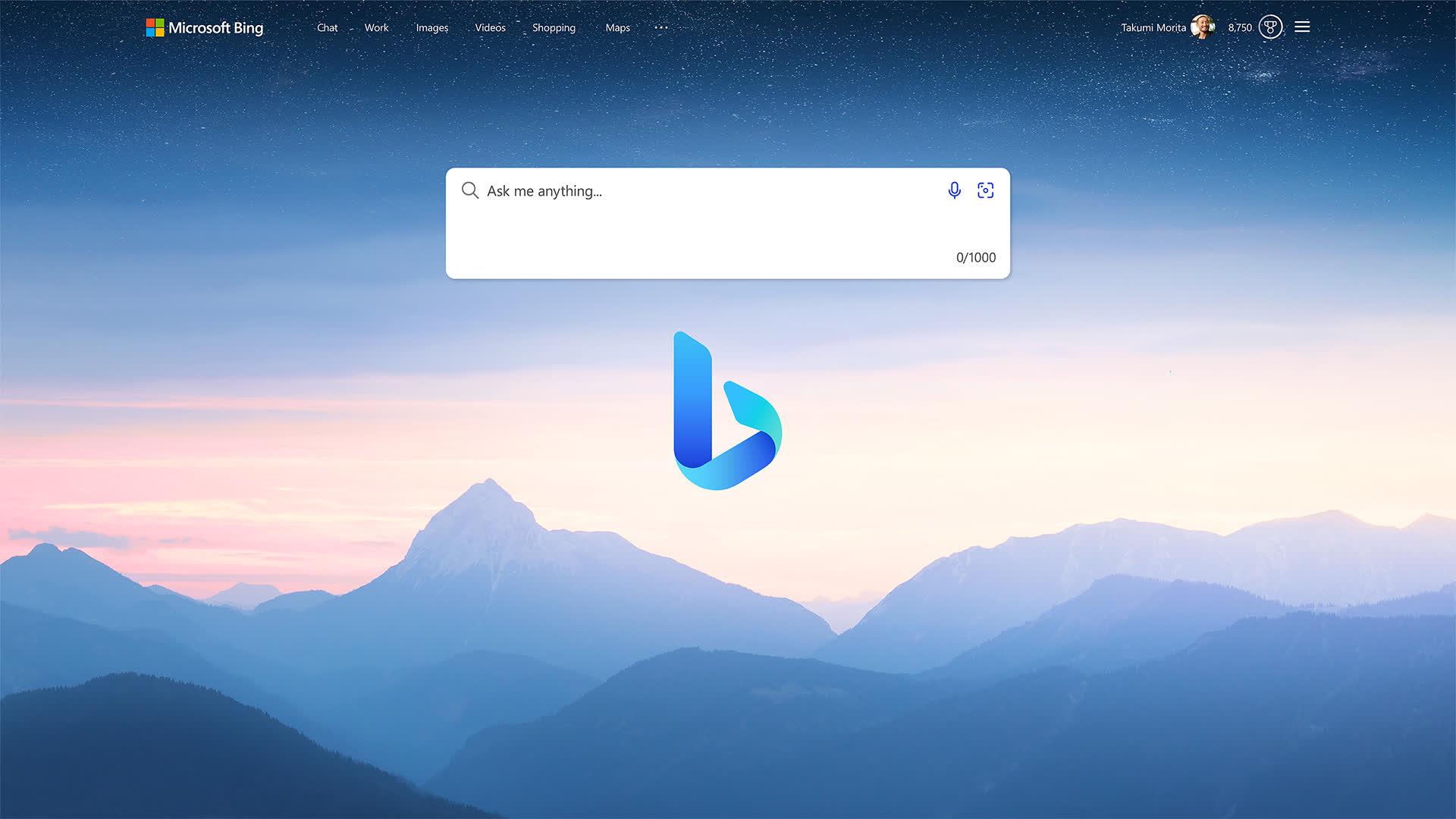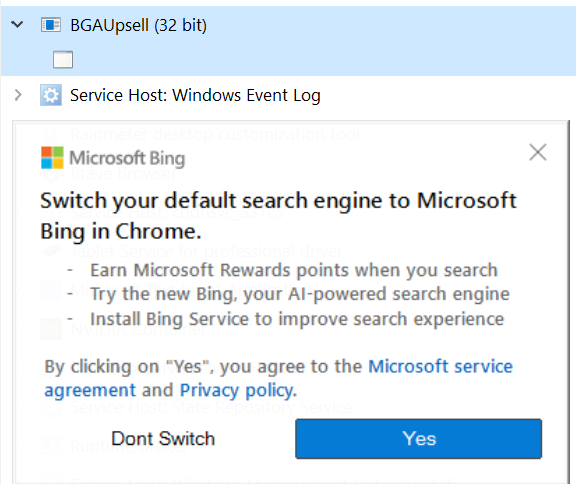Facepalm: Microsoft has long used intrusive, irritating, or underhand methods to get Windows users to make the switch to Edge and Bing, but the latest tactic it has been testing, a pop-up, is so bad that some people initially thought it was malware.
The Verge's Tom Warren was one of those who feared his PC had been infected when a pop-up appeared asking him to switch his default search engine to Microsoft Bing in Chrome.
This isn't new territory for Microsoft, of course, but it wasn't a standard notification or one of the suggested new features Windows makes. It was a rogue executable file, signed by Microsoft, that appeared in c:\windows\temp\mubstemp.
The pop-up isn't new; it has been confusing many Redditors for months now. Some users said they scanned their PCs using anti-virus programs after seeing the message, fearing it may have come from a malicious source. One person noted that they didn't even use Chrome.
The reality, of course, is that this is just the latest attempt by Microsoft to push people onto its products or their latest versions. The company famously employed aggressive tactics when promoting its free Windows 10 upgrade offer, and was accused of deceiving people into upgrading to that OS by deploying malware-like methods.
In 2016, Microsoft's Get Windows 10 (GWX) pop-up offered users the choices of "Upgrade Now" or "Start Download, Upgrade later," meaning those who didn't want the then-newest OS had to close the pop-up using the standard X in the corner of the box. However, the company changed this by introducing a small and easily missed link for rescheduling or changing the upgrade. Following the alteration, anyone who clicked on the corner X was unwittingly giving consent for the upgrade to take place at the scheduled time. Microsoft later admitted that it had "gone too far" with that one.
Years later, when Microsoft launched Windows 11, it initially made the process of switching the default web browser needlessly complicated.
We've also seen Microsoft warn people who downloaded Chrome from Edge that Google's browser is "so 2008," and it was only recently that full-size Edge ads were reported on the Chrome website. There was also a Windows update that pushed users onto Edge, along with many, many more examples.
It appears that the latest pop-up was just an experiment by Microsoft, probably to gauge whether the amount of user outcry would be acceptable. The company did claim, however, that the pop-up's behavior wasn't intentional.
"We are aware of these reports and have paused this notification while we investigate and take appropriate action to address this unintended behavior," Caitlin Roulston, Microsoft's director of communications, told The Verge.

